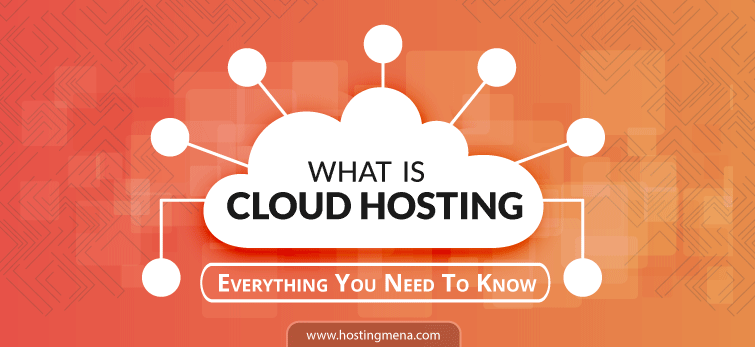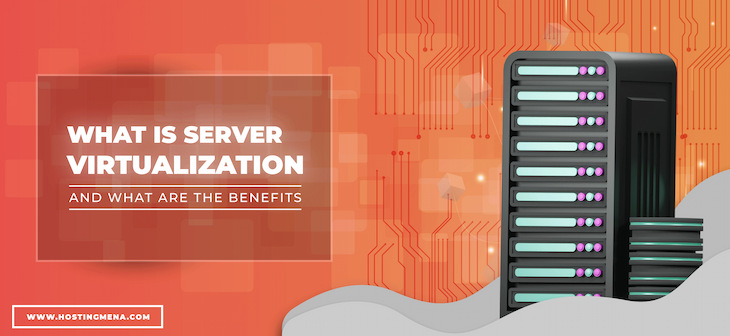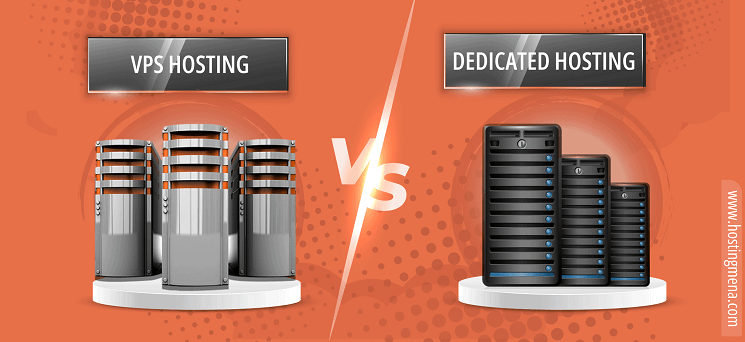What Is Cloud Hosting – Everything You Need To Know
Cloud computing has gained significant popularity in the digital industry and is being used at all levels, from smaller to larger companies. A few years ago, it was almost reserved for big industries that could afford cutting-edge technology. Now, we see many businesses transforming their websites to cloud hosting.
Here, we’ll discuss cloud hosting, the different types, and how it can make your website and resources more efficiently.
What is Cloud Hosting?
Cloud hosting is a technology that splits a physical server into numerous virtual machines called cloud servers, providing hosting services for your website.
You may have already heard about cloud computing if you host a website or web app or even consider doing this in the future. It is different from web hosting, but how?
Web hosting uses a single server to host the website; this is not the case in cloud hosting, where we distribute the work for web hosting on the network of virtual and physical servers. These servers are usually spread across multiple geo-locations.
Architecture and Features of Cloud Hosting
We usually see advanced cloud-based architecture tailored for all hosting requirements in cloud hosting. It means there are no on-premises servers that need to be maintained. It applies all the core features and cloud computing benefits to the host website or app. However, the core features of cloud computing include flexible payment, scalable resources, and SQL & NoSQL database support with automated solutions.
1. Distributed Infrastructure
The distributed servers make cloud hosting a top choice. It never relies on a dedicated server based in one location. Instead, cloud hosting provides multiple machines across cities or countries. This infrastructure consists of large data centers which experts perfectly manage. Moreover, they come with integrated power and reliable cooling systems, ensuring maximum efficiency.
2. Resources Aligned With Organizational Needs
Traditional hosting is provided from a single server; if you need to scale up the operation, you must install multiple new units or upgrade the equipment. This is quite a cumbersome task and requires regular testing. It also affects the overall performance of the servers leading to poor service.
On the other hand, you will never need to upgrade the servers or buy more disk space when it comes to cloud hosting. The cloud infrastructure is developed to allow you to increase the resources in real time according to the requirements.
3. Best Payment and Pricing
You need to sign up for a hosting package in traditional VPS hosting. It gives you access to defined resources on a single server. You only need to register your domain, then the bandwidth, Ram, and how many CPU cores you will require. If you are looking for more flexible options, you should consider cloud hosting packages. You will never have to worry about hardware upgrades and other fatigues. Instead, you will get greater server capacity and only pay for the resources you use.
Yes, it comes with pay-as-you-go. So, it is always a good choice if you think about effective cost management while getting cloud hosting services.
4. SQL and NoSQL Database Support
The host must support the database your web application has deployed. The most common databases are SQL and NoSQL. Cloud hosting supports both databases, making it an ideal solution, especially for developers who know how to work with both. It is indeed a viable option when it comes to database support for an extensive range of applications.
5. Latest & Automated Solutions
Over the past few years, cloud hosting service providers have improved delivery models by incorporating the latest tools and technology. So, upgrading software and other important changes to resource deployment have become much easier, and it does not take much time for reconfiguration.
Moreover, the automatic provisioning of computation, storage resources, and bandwidth your app needs can optimize performance and enhance resource useability.
What are The Types of Cloud Hosting?
In any typical WordPress hosting, you may not find the resources and services offered by cloud hosting. So, if you want to try cloud-based hosting for your applications, you must know about the types of cloud hosting.
Following are the four categories of cloud with different features, advantages & disadvantages.
1. Public Cloud Hosting
Public hosting in a cloud environment is like a shared server in a typical hosting. When you host on a public cloud, hardware is shared among various virtual machines. But, unlike traditional hosting, virtual servers’ resources are ring-fenced, meaning the disk space and power are not shared with other signed-up accounts.
You can easily configure the cloud environment while hosting on a public cloud to protect your application with a firewall.
2. Private Cloud Hosting
Public cloud hosting is protected, but you can choose private cloud hosting if you feel uncomfortable with shared hosting servers and resources. It is suggested if you need high-level security. You do not share the resources and infrastructure with other accounts in this particular type. You can easily maintain your resources and have a unique cloud server.
Private cloud hosting is more expensive than public because it comes with exclusive use of hardware. But, if you want to protect your data, you will find it worth spending some extra pennies.
3. Hybrid Cloud Hosting
In this cloud hosting, the infrastructure covers public, private, and on-premises services. Hybrid hosting is designed to provide management, orchestration, and portability of your application across different architectures. It results in a single and flexible distributed computing. So, for web hosting, this model has all the advantages that an organization can easily run and scale using the standard and right computing paradigm.
4. Managed Cloud Hosting
Managed cloud hosting increases the logic of outsourcing crucial IT operations. In addition to providing an ideal physical infrastructure and virtual systems to host web apps, a managed cloud offers a full range of application-level support.
This cloud hosting is highly suggested for smaller businesses or even best for startups that might not have dedicated staff to host the website. However, it requires dedicated PHP developers and expert developers.
What are The Advantages of Cloud Hosting?
You must have understood now that cloud hosting has many things to offer and complement your web hosting requirements. Unlike traditional web hosting, cloud environments offer improved reliability, efficiency, and scalability.
Let’s find out what benefits you can get from cloud hosting.
1. Resources Scalability
Cloud hosting uses specialized data centers managed by the hosting platform, allowing you to increase your capacity in real time whenever you need further resources. With cloud hosting’s quick and on-demand scalability, you can conveniently secure your website for the future.
2. On-demand Use of Resources
Data centers operate on a large scale, and cloud hosting providers offer the plans, allowing you to pay only for the resources or services you use. Cloud hosting enables you to meet your needs while keeping up with constantly evolving resources.
3. Reliability of Services
Modern data centers offer high-performance computing while prioritizing security and reliability to support the current cloud infrastructure. A traditional data center will run the updated server racks, cooling systems, and various backup power supplies. The data centers provide servers based on failure proof for cloud hosting. So, cloud solutions offer impressive reliability.
4. Operational and Capital Savings
For most businesses, the biggest advantage of cloud hosting is the savings that can be spent on installing equipment, upgradation of resources, and maintenance. You don’t need to employ an IT department to run your infrastructure, which is a huge saving, especially for startups or smaller companies.
While running web apps, the combo of on-demand service, scalability, reliability, and significantly reduced hardware expenses make the cloud-based approach the best choice.
What are the Top Cloud Hosting Service Providers?
You can find multiple cloud hosting providers for each niche. Still, some big names dominate the cloud services that you may already know or have heard about.
Let’s discuss them one by one.
1. IBM Cloud
Being the oldest company and extensive experience in providing hardware and software to major businesses, it should be no surprise that IBM is one of the top cloud hosting providers.
IBM cloud hosting allows flexibility to choose from different options, service models, and pricing suitable for the application. It offers fully managed applications to customer-managed systems on shared infrastructure.
2. Amazon Web Services (AWS)
AWS is the leading cloud hosting provider with over 30% market share. AWS has become the market leader by offering a comprehensive range of cloud services, features, and plans for multiple requirements and levels. It is all because of its high-performance service and use of cutting-edge tools and technological innovation.
3. Google Cloud
Google’s cloud hosting offers a wide range of web-serving solutions, providing over one hundred click-and-deploy options. The services are easiest to use and manage, even by inexperienced developers. Most people find the working environment familiar because it uses various Google tools to integrate services.
4. Microsoft Azure
Microsoft started cloud computing in 2010, and it has been applying the same approach of user-focused design. It even helps make operating systems successful in the cloud hosting market. Azure offers an excellent suite of cloud tools for all types of web developers. It also supports Windows and Linux virtual machines.
What Factors to Consider in Cloud Hosting?
Anyone choosing the cloud hosting platform for their websites needs to be extra thoughtful because it gets a little tricky among many available options.
Here are some of the core factors that you must take into account.
1. Security
We have recently seen some big companies exposed to cyber-attacks, and there have been a lot of data breaches. The main reason is the attackers have found vulnerabilities in the web services. However, you should go towards finding more secure cloud tools, especially for data sharing.
In order to avoid these security issues, you must consider cloud hosting with the best security practices like regimented backups, installing SSL certificates, monitoring, and regular malware scanning.
Suppose you prioritize cybersecurity while choosing a cloud hosting platform. In that case, you must focus on the level and types of encryption they provide and check whether they use suitable security tools.
2. Support
Cloud hosting providers vary in the level of services they provide with their customer support and technical department. Therefore, you should go for the package or plan suitable for all your specific requirements.
Moreover, it is important to consider and choose the cloud hosting platform that supports the specific software stack that you use in development. For example, some hosting providers offer different Apache integrations, and most hosts are not compatible with CPanel. So, make sure you choose the hosting provider that offers you all the support you need.
3. Performance and Features
Apart from the key performance metrics, such as execution speed, uptime, and storage capacity, there are some additional features that you should expect from your cloud hosting platform.
Check whether they offer a free domain or customized control panel to help you track performance, usage, and changes. Moreover, some platforms even offer a money-back guarantee if you call the deal off.
How Can Hosting MENA Help You With Cloud Hosting?
Hosting MENA offers many cloud solutions that suit your needs. With our powerful cloud-based services for small to large businesses, we expertly manage all the resources and provide tailored solutions. We help you streamline your operations and increase connectivity with the latest tools.
You can contact us to talk to our professional and highly skilled team. They will listen to your problems and provide the best solutions considering your needs and specific requirements.
Frequently Asked Questions
1. What Can I Easily Host on a Cloud Server?
There are no restrictions whatsoever. You can host anything you want, which is legal, and all the requirements are well-supported. So, anything that can be run on traditional servers can be easily run on cloud servers.
2. How Many Domains Can I Host on a Cloud Server?
You can easily host as many domains as you want on a cloud server. However, the only restriction is on the allocation of resources.
3. Can I Update My Resources on Cloud Servers Anytime?
Of course, you can always upgrade your resources such as memory, CPU, web space & bandwidth whenever you need them. The process of upgrading the resources is simple and has no downtime. Get in touch with us, and we will take care of you!
4. How Much Time Does It Take To Get Extra Resources?
Most resources, such as RAM, CPU, hard drive, and bandwidth, can easily be upgraded to a cloud server within a few minutes.
5. Do You Maintain Cloud Server Backups?
Yes, we do. We have regularly created backups of all our cloud servers. Moreover, we offer customized backups based on your requirements and feasibility.
6. How Does Cloud Hosting Differ from Dedicated and VPS Hosting?
With cloud hosting, you are not limited to a solo server; your resources are spread over multiple servers and networks. In VPS, you get a server partition that you can customize according to your needs. Dedicated hosting gives you the whole server with all resources you can use or customize based on your requirements.






